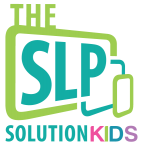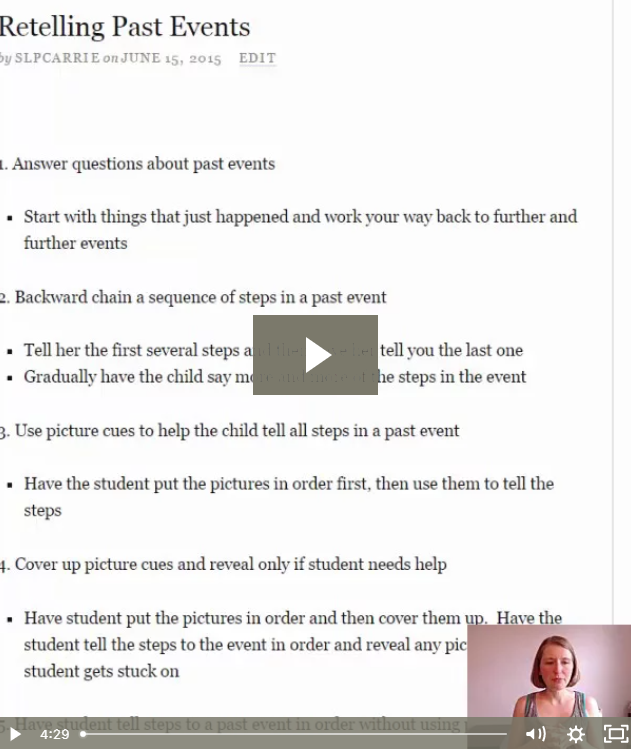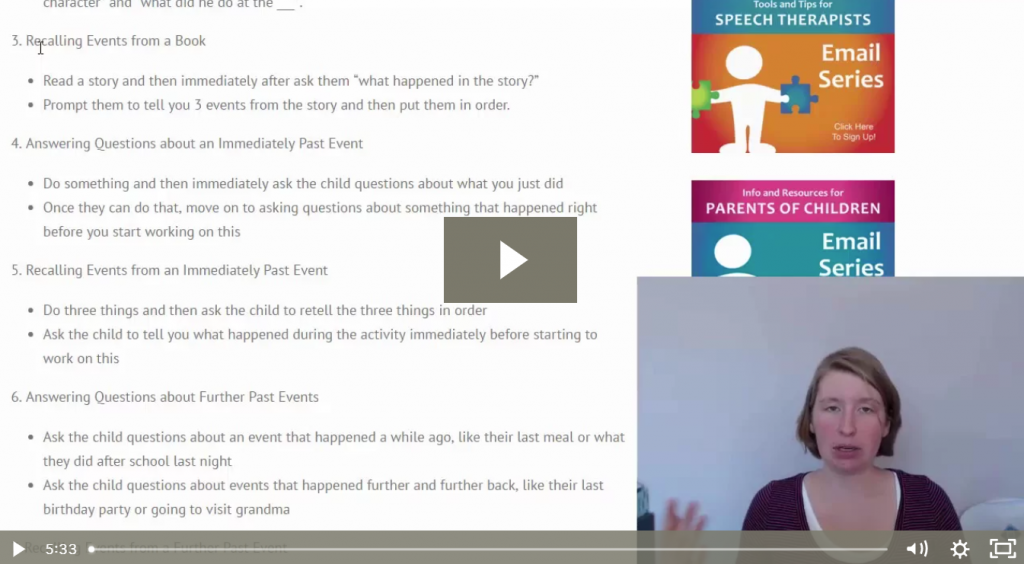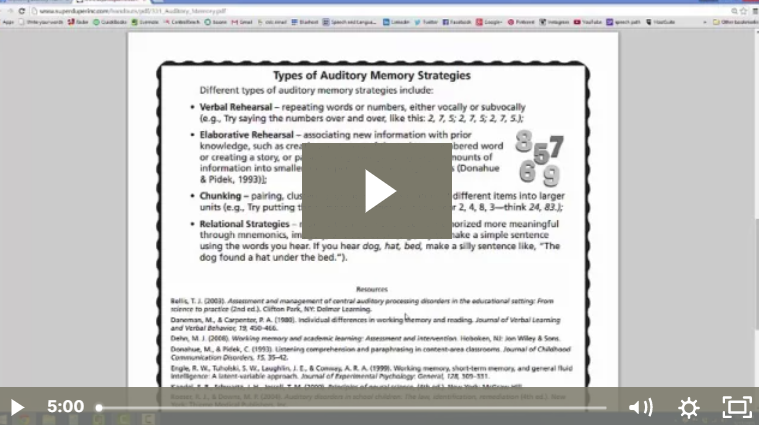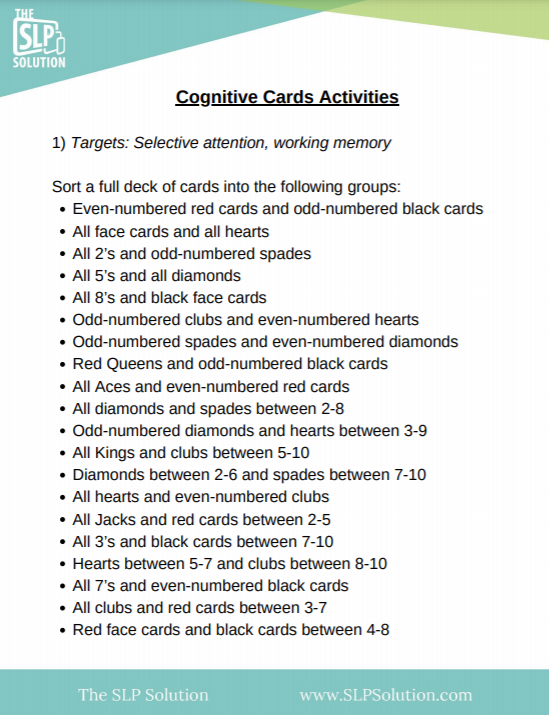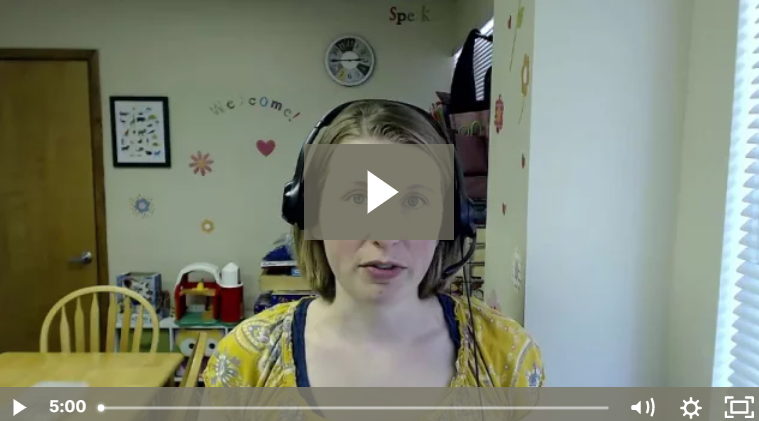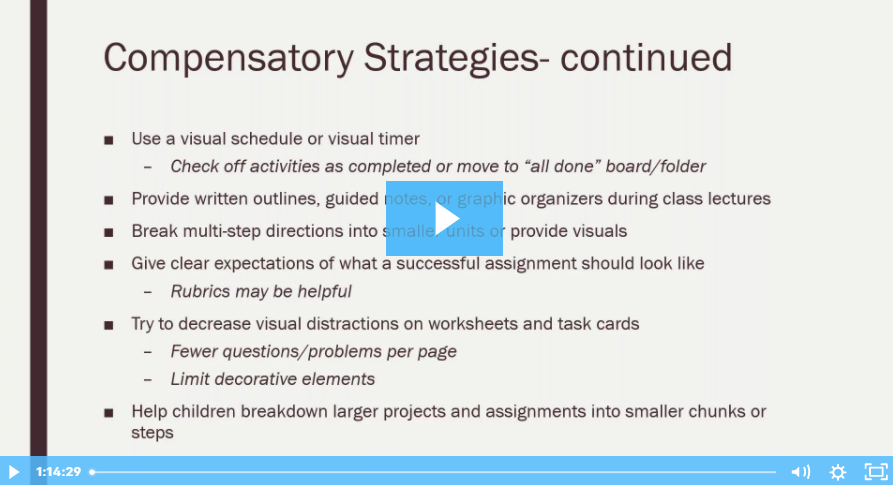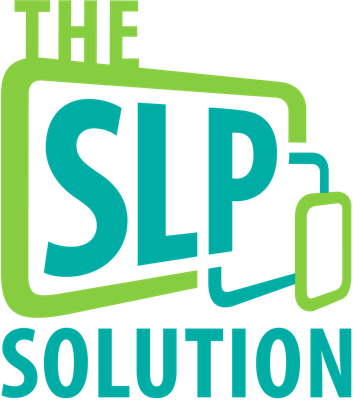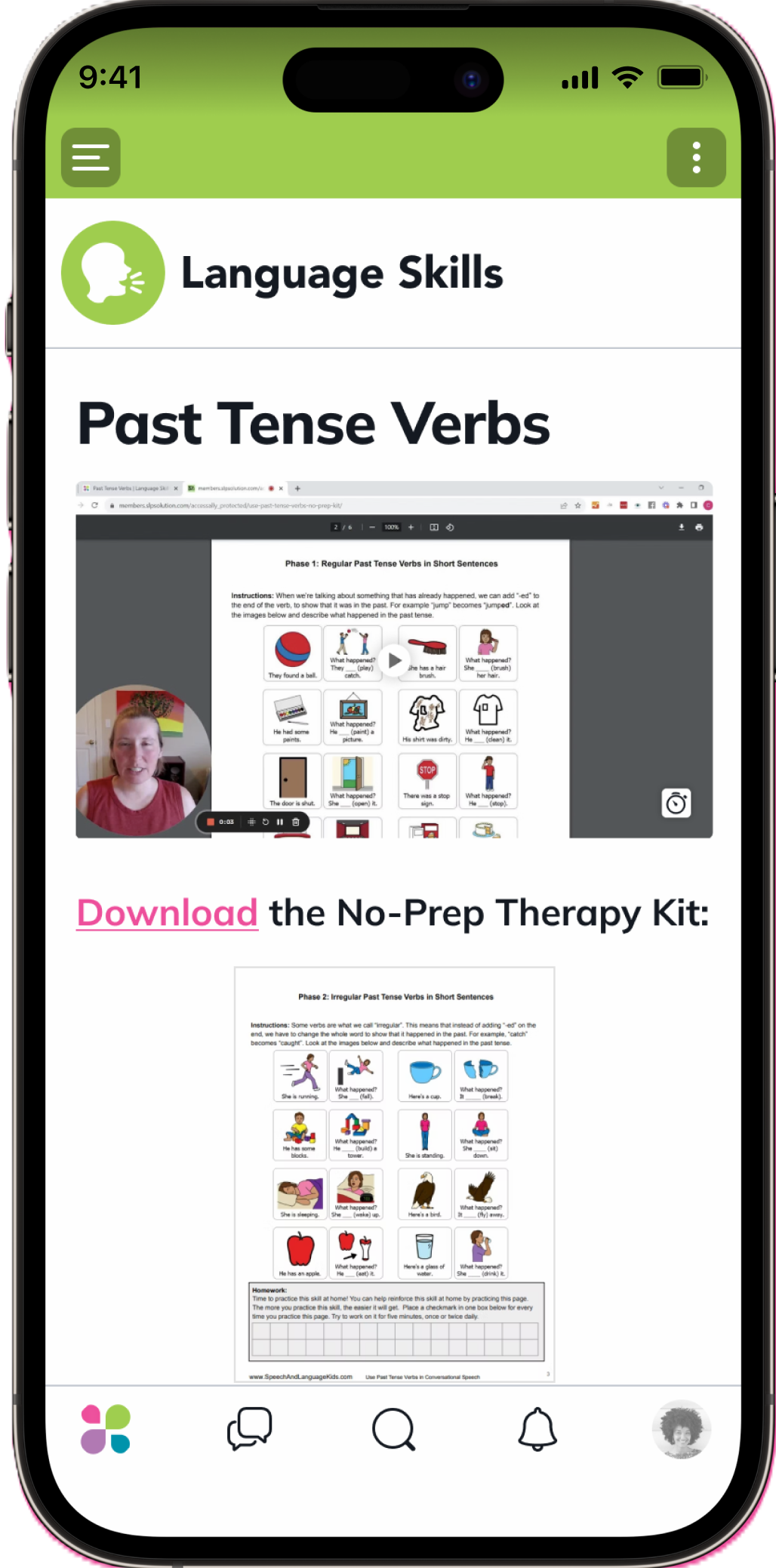Condition: Memory & Recall Concerns
Jump To:
Norms by Age Evaluation Therapy Suggested Goals
Definition:
Some of the children we work with struggle with memory problems. There are many different ways to approach memory problems, so here are a few different videos to help explain therapy activities and approaches for improving memory in children.
Developmental Norms:
Working memory isn’t a single, unitary system. There are different types of WM, and each type is associated with different kinds of thinking.
For instance, verbal working memory predicts better performance on verbal tasks, but not spatial tasks.
Spatial working memory (tracking where items are located) is linked with better spatial skills, but not superior verbal ability (Shah and Miyaki 1996).
A third type of WM — being able to remember visual imagery — is linked with its own special advantages (Fanari et al 2019).
And there may be other, distinct types of working memory, like the ability to keep track of sequences (e.g., the order in which items appear on a list). “Series order” working memory is linked with better arithmetic performance (Attout and Majerus 2018; Carpenter et al 2018).
So differences in cognitive performance are related to differences in working memory capacity. But they effects can be pretty specific. For instance, a child with dyscalculia (a mathematical learning disability) might test normally in verbal WM, but lag behind in “series order” WM (Attout and Majerus 2015).
Source: https://www.parentingscience.com/working-memory.html
Warning Signs:
Since the topic of memory and recall covers such a large amount of skills, it is hard to nail down exact developmental norms for children with memory problems. However, certain signs may point to children have difficulty with working memory or other memory/recall skills:
Kids with working memory difficulties typically…
- Have normal social relationships with peers;
- Are reserved during group activities in the classroom, and sometimes fail to answer direct questions;
- Find it difficult to follow instructions;
- Lose track during complicated tasks, and may eventually abandon these tasks;
- Make place-keeping errors (skipping or repeating steps);
- Show incomplete recall;
- Appear to be easily distracted, inattentive, or “zoned out”; and
- Have trouble with activities that require both storage (remembering) and processing (manipulating information).
Evaluation:
If you suspect a disorder in memory and recall, a full communication evaluation should be conducted. A full medical history and background should be collected and all areas of communication should be considered in the evaluation. The memory aspects of the child’s evaluation may be better addressed by a psychologist.
Information about Memory Evaluations (From the British Psychological Society):
“To provide a broader evaluation of a child’s profile of working memory strengths and weaknesses, specialised working memory test batteries such as the Working Memory Test Battery for Children (Pickering & Gathercole, 2001) and the Automated Working Memory Assessment (AWMA: Alloway, 2007) can be used. Both include verbal memory tests involving digit and non-digit stimuli, and also incorporate tests of non-verbal memory using stimuli such as spatial patterns and movement sequences. The AWMA is is a computerised assessment with automated scoring that is appropriate for use by teachers as well as psychologists, and also incorporates visuo-spatial complex memory tests. This breadth of assessment produces a working memory profile for the child that can, for example, distinguish between core working memory deficits that generalise across all domains (which is most typical for children with poor working memory) and less balanced patterns of deficit that are more severe for either verbal material (Archibald & Gathercole, 2006) or visuo-spatial material (Archibald & Alloway, in press). Knowing the profile of working memory strengths and weaknesses is particularly useful in identifying effective learning support for individual children. Finally, it should be noted that these working memory assessments provide valuable prospective indicators at school entry of children at risk of poor academic progress over the coming school years (Gathercole et al, 2003).”
Source: https://thepsychologist.bps.org.uk/volume-21/edition-5/working-memory-classroom
Suggested Goals:
The results of the assessment process should help guide what you will target in therapy for a child with memory problems. Here are some goals that may need to be addressed in children with memory or recall problems. You can click on one of the goals below to learn more. Or, scroll down to the therapy section for more in-depth resources and support for treating this condition.
Therapy:
Here are some more resources and information that may help you when it comes to treating this condition.
Teaching a Child to Retell Past Events
Quick overview of the therapy steps for teaching a child to retell a past event.
How to Help Children with Memory/Recall Problems
Basic overview of how to approach therapy with a child who is having trouble remembering and/or recalling things.
How to Improve Auditory Memory
Tips and activity ideas for improving auditory memory skills in children.
A list of quick and easy activities that you can do with a deck of playing cards to work on working memory and visual memory.
Help for Children with Short Term Memory Problems
Ideas for helping children who are struggling with short term memory.
SLP’s Role in Assessing and Managing Attention – Webinar Recording
Full, hour-long presentation about how SLPs can assess and help children with attention problems.
Didn’t Find What You’re Looking For?
We’re constantly working on adding new features and topics to this membership site. If you don’t find what you’re looking for by using the search bar at the top of the page, please use the button below to request new features or topics to be added!
